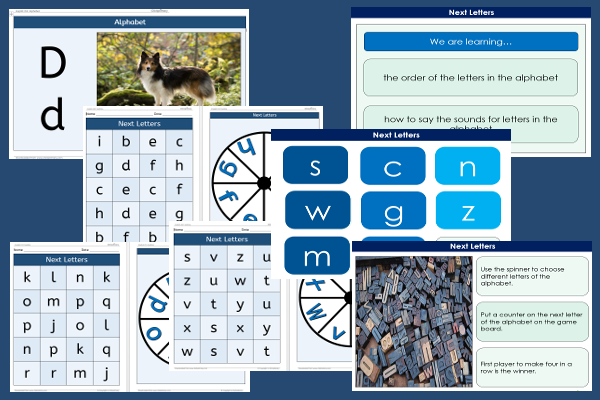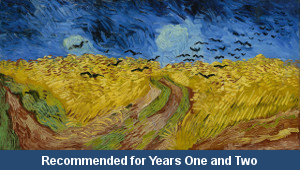Next Letters

This English teaching activity for Key Stage One gets the children to explore how to identify and record the correct matching lowercase letters that follow different letters to show the sequence of letters in the alphabet.
The class can build and use some of their own game boards and letter spinners that can be used to select and match the next letters for each of the capital letters as part of an alphabet sequence.
Download this teaching pack including display posters, classroom activities and an interactive presentation to explore how to identify and record the correct matching lowercase letters that follow different letters to show the sequence of letters in the alphabet
Activities in this teaching pack include display posters to identify and sequence lowercase and capital letters of the alphabet and worksheets to identify and record the sequence of letters in the alphabet when playing a game using matching sets of lowercase letters.
The interactive presentation gets the children to explore and record the correct matching letters that follow different letters of the alphabet.
This lesson is part of an English scheme of work to get the children to identify and record how to complete and order different groups of letters to show their matching sequences in the alphabet. There are teaching activities for shared learning, differentiated worksheets to support independent learning and interactive presentations to introduce concepts and key skills.
-

Counting Back
Practise using the number technique of counting back to solve and complete a range of abstract and contextual subtraction calculations
-

Mother Nature
Explore how mother nature can provide nourishment, protection and support to all living things in different habitats and environments
-

Digraphs Word Sums
Investigate the spellings and meanings of different sets of words with a range of initial consonant digraphs
-

Van Gogh
Investigate and replicate the work and painting style of a famous artist from the past by producing a matching landscape of the school building
